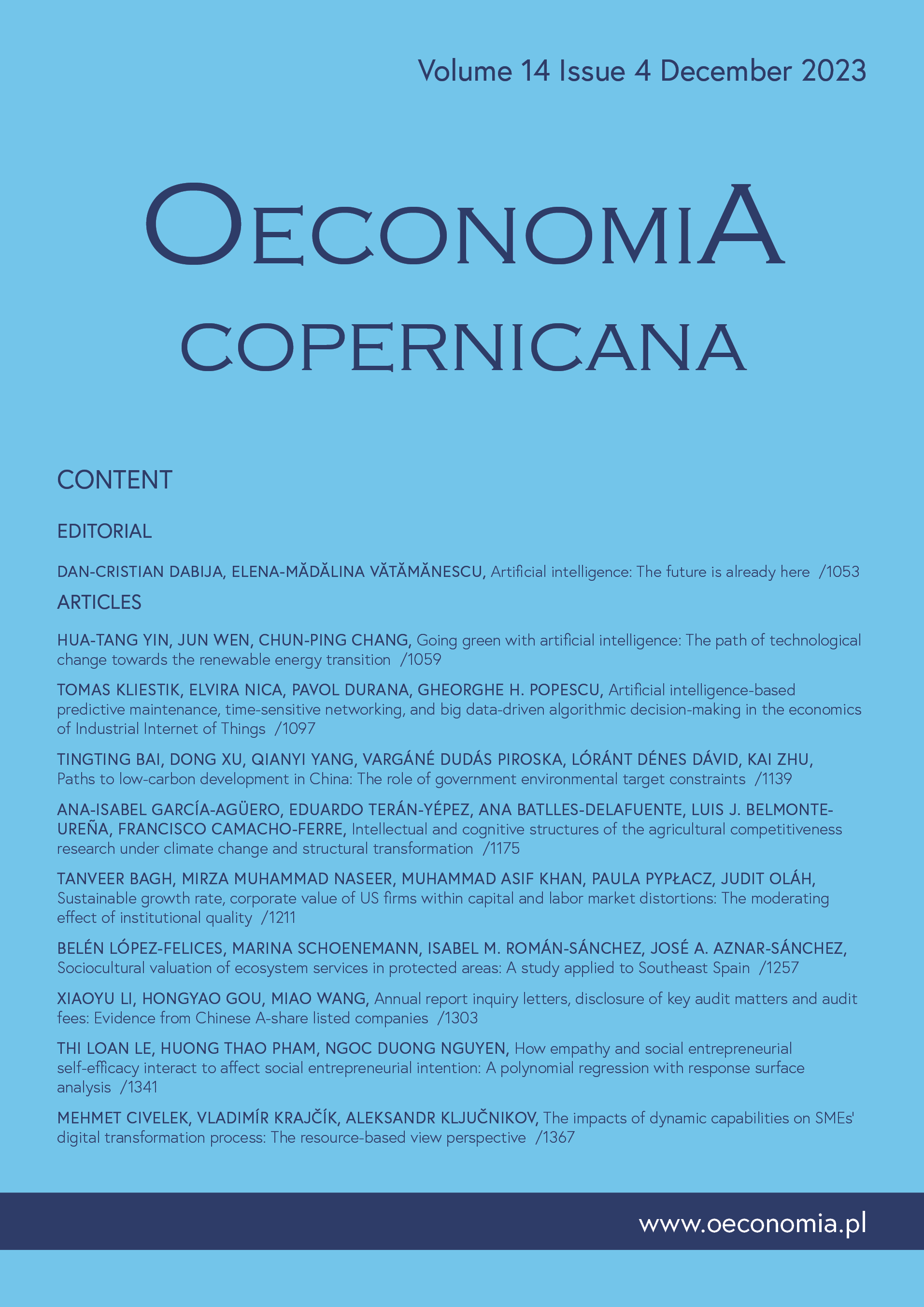Going green with artificial intelligence: The path of technological change towards the renewable energy transition
Going green with artificial intelligence: The path of technological change towards the renewable energy transition
Author(s): Hua-Tang Yin, Jun Wen, Chun-Ping ChangSubject(s): Energy and Environmental Studies, Environmental and Energy policy, ICT Information and Communications Technologies
Published by: Instytut Badań Gospodarczych
Keywords: AI software development; energy transition; innovation; environmental monitoring; environmental policy;
Summary/Abstract: Research background: The twin pressures of economic downturn and climate change faced by countries around the world have become more pronounced over the past decade. A re- newable energy transition is believed to play a central role in mitigating the economic-climate paradox. While the architectural and computational power of artificial intelligence is particu-larly well suited to address the challenges of massive data processing and demand forecasting during a renewable energy transition, there is very scant empirical assessment that takes a social science perspective and explores the effects of AI development on the energy transi- tion. Purpose of the article: This paper aims to answer two key questions: One is, how does AI software development promote or inhibit the shift of energy consumption towards renewa- bles? The other is, under what policy interventions does AI software development have a more positive effect on promoting renewable energy consumption? Methods: We employ a dataset of 62 economies covering the period 2011–2020 to analyze the impact of AI software development on the energy transition, where possible confounders, including political and economic characteristics and time-invariant elements, are controlled using fixed-effects estimation along with specified covariates. Findings & value added: AI software development can promote the energy transition to- wards renewables. There is suggestive evidence that the core mechanism linking such a posi- tive relationship tends to lie in improving innovation performance in environmental monitor- ing rather than in green computing. Government support for R&D in renewable energy tech- nologies is found to be significantly beneficial for harnessing the positive impact of AI soft- ware development on the energy transition. Compared to non-market-based environmental policies, market-based environmental policies have a more significant positive moderating effect on the relationship between AI software development and energy transition.
Journal: Oeconomia Copernicana
- Issue Year: 14/2023
- Issue No: 4
- Page Range: 1059-1095
- Page Count: 37
- Language: English

